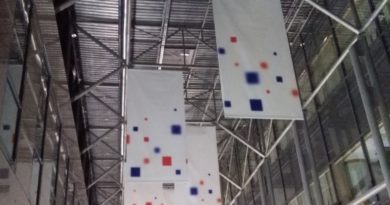Arms embargo in Syria. A British proposal
(BRUSSELS2) François Hollande and David Cameron left together - by Thalys - from the European Summit with the objective - as detailed by the French President to the press - " to discuss foreign policy. We have positions, common approaches ". And to mention Syria in particular. " We are doing everything so that the Geneva conference can not only take place but also succeed ". François Hollande refused to anticipate the outcome of negotiations between foreign ministers on Monday (27 May). But firmly repeated the French position. “We make sure to tell the Europeans that the pressure must continue. We cannot have a regime that has weapons on one side and an unarmed opposition on the other. »
A subject discussed at the European summit (but not discussed)
The lifting of the arms embargo - or rather its modification - was tackled, quickly, at the end of a European Summit, very short (4 hours) and which was devoted to other subjects (energy, tax evasion). David Cameron thus pleaded not for the lifting of the arms embargo but for its development in order to put " more pressure on the Assad regime to come to the negotiating table ". For the British, it takes consider all options, including the possibility of giving additional aid to the moderate Syrian opposition ". This position was supported - according to our information - by the French President, Fr Hollande, and the Italian Prime Minister, Enrico Letta. But several countries have indicated their hostility to any lifting. Austrian Chancellor Fayman notably indicated that " if Europe lifts the embargo, Austria withdraws its peacekeepers from the Golan Heights (Austrian blue helmets were injured in November 2012. Read: 2 Austrian UN soldiers injured in Syria. Others - of different nationalities - briefly kidnapped more recently).
A proposal for amendments
Shortly before, during the meetings of the ambassadors (COPS, COREPER) the British had tabled an option paper which resulted, technically, not in lifting the embargo but in modifying its content by allowing the delivery of arms to "the moderate opposition" and not "to the extremists". The objective is, as the British put it, " to avoid any dependence of the moderate Syrian opposition on well-armed Islamist armed groups”.
Currently, member states can provide the Syrian National Coalition (SNC) with “technical assistance and non-lethal material for the protection of civilians”. Two alternative proposals are made: one aims to completely exempt the CNS from the arms embargo by allowing delivery without any other condition (the condition of "destination for the protection of civilians" would thus be removed), the second to allow the supply of lethal material but keeping this objective of "protection of civilians"
1st option. Completely exempt the National Coalition from the arms embargo
This option would allow the embargo to no longer apply to the National Coalition for the Syrian Revolution and the opposition forces. As a British diplomat explains, the reason for this development is logical. Firstly, " the embargo on Syria was created to prevent the Assad regime from brutalizing its own people. The embargo should (therefore) not apply to the National Coalition, which has not been responsible for the systematic and oppressive violence against civilians perpetrated by the regime. " On the other hand, " this approach is consistent with the approach Member States have adopted for financial and trade sanctions”.
Amendment • the provision of technical assistance, brokering services and other services for the sale, supply, transfer or export of arms and related materiel of all types or equipment which might be used for internal repression to the Syrian National Coalition for Opposition and Revolutionary Forces intended for the protection of civilians;
2. Allow the supply of lethal material to the CNS and opposition forces
In practical terms, it would suffice to remove the word "non-lethal" from the current wording of the paragraph on the arms embargo. This would make it possible to provide lethal material “without further modifications”. This lethal equipment should always meet the “intended for the protection of civilians” purpose. For the authors of the proposal, this option would have an advantage: “ allow the EU to send a clear message to Assad that all options are on the table. This increases the pressure on him to come to the negotiating table. It also allows EU members more flexibility to provide a greater range of equipment for the Syrian National Coalition so that it can protect civilians, including in extreme or unexpected circumstances. »
Amendment • “Article 1 (embargo) shall not apply to (...) the sale, supply, transfer or export of non-lethal military equipment or of equipment which might be used for internal repression, intended for humanitarian or protective use or for the protection of civilians, or for institution building programs of the United Nations (UN) and the European Union, or for European Union and UN crisis management operations, or for the Syrian National Coalition for Opposition and Revolutionary Forces intended for the protection of civilians”.

